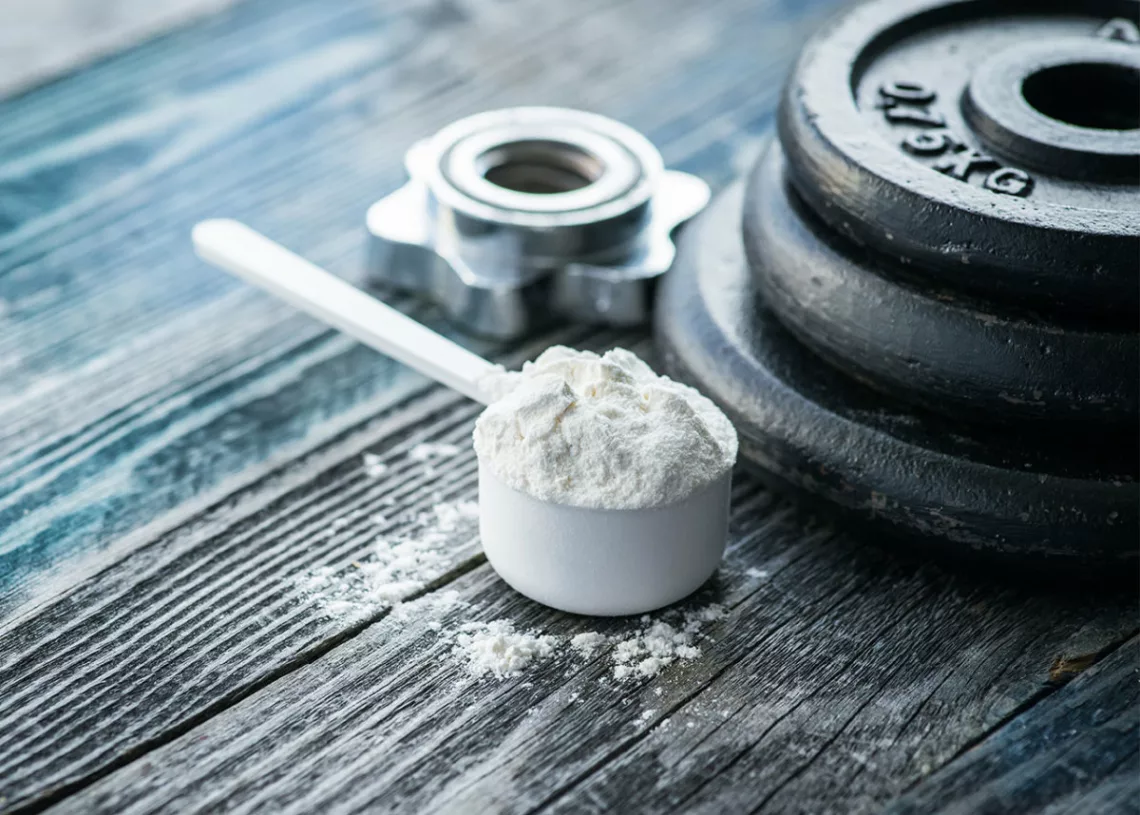As a fitness enthusiast, you’re constantly seeking ways to enhance your performance, boost muscle gains, and optimize your overall health. In the realm of supplements, few have garnered as much attention and controversy as Creatine. In this comprehensive guide, we’ll delve into the positive and negative aspects of Creatine supplementation, explore its performance and health benefits, address safety concerns, and provide guidance on who should consider supplementing with Creatine and what to look for when choosing a supplement.
Unleashing the Power of Creatine
What is Creatine?
Before diving into its benefits and concerns, let’s understand what Creatine is. Creatine is a naturally occurring compound found in small amounts in foods like red meat and fish, and it’s also synthesized by the body from amino acids. It plays a crucial role in energy metabolism, particularly during short-duration, high-intensity activities like weightlifting and sprinting.
Performance Benefits of Creatine Supplementation
Enhanced Muscle Strength and Power
Numerous studies have demonstrated that Creatine supplementation can significantly increase muscle strength and power output, making it a staple supplement for athletes and fitness enthusiasts alike. By increasing the availability of phosphocreatine, a key molecule for energy production during intense exercise, Creatine allows for more rapid ATP regeneration, leading to improved performance during short bursts of activity.
“Creatine supplementation has been shown to enhance muscle strength and power, making it a valuable tool for athletes looking to maximize their performance.”
Increased Muscle Size and Hypertrophy
In addition to boosting strength and power, Creatine supplementation has also been linked to increased muscle size and hypertrophy. This is primarily attributed to its ability to enhance intracellular water retention within muscle cells, leading to a more pronounced “pumped” appearance and potentially facilitating muscle growth over time.
Improved Exercise Recovery
Beyond its immediate performance benefits, Creatine supplementation may also aid in exercise recovery by reducing muscle damage and inflammation post-exercise. This can translate to faster recovery times between workouts, allowing individuals to train more frequently and with higher intensity, ultimately contributing to greater long-term gains in strength and muscle mass.
Safety Concerns of Creatine Supplementation
While Creatine is generally considered safe for most individuals when used as directed, there are some safety concerns and potential side effects to be aware of, particularly with high doses or prolonged use.
Dehydration and Muscle Cramping
One of the most commonly cited concerns associated with Creatine supplementation is the potential for dehydration and muscle cramping. This is thought to occur due to the increased water retention within muscle cells, which may lead to extracellular fluid loss if adequate hydration is not maintained. However, research suggests that these side effects are relatively rare and can typically be mitigated by ensuring proper hydration.
“While dehydration and muscle cramping have been reported with Creatine supplementation, they are generally uncommon and can be minimized by maintaining adequate hydration levels.”
Renal Stress
Another safety concern often raised is the potential for renal stress or kidney damage with long-term Creatine supplementation. However, the majority of research indicates that Creatine is safe for individuals with healthy kidneys and does not adversely affect renal function when used responsibly. Nonetheless, those with pre-existing kidney conditions should exercise caution and consult with a healthcare professional before starting Creatine supplementation.
Gastrointestinal Distress
Some individuals may experience mild gastrointestinal distress, such as bloating, gas, or diarrhea, when first starting Creatine supplementation. This is thought to be due to the osmotic effects of Creatine drawing water into the intestines. Fortunately, these symptoms typically subside with continued use or can be minimized by starting with a lower dose and gradually increasing it over time.
Who Should Avoid Creatine Supplementation?
While Creatine is generally safe for most individuals, there are certain groups or conditions for which supplementation may not be advisable.
Pregnancy and Breastfeeding
Pregnant or breastfeeding women are typically advised to avoid Creatine supplementation due to a lack of research on its safety in this population. While there is no definitive evidence suggesting harm, the potential risks are not well understood, and it’s best to err on the side of caution during pregnancy and lactation.
Adolescents
While Creatine supplementation is widely used among adolescents involved in sports and fitness activities, there is limited research on its long-term safety and efficacy in this population. As such, adolescents should exercise caution when considering Creatine supplementation and consult with a healthcare professional before doing so.
What to Look for When Buying Creatine Supplements
With countless Creatine supplements flooding the market, choosing the right one can be overwhelming. Here are some key factors to consider when selecting a Creatine supplement:
- Purity and Quality: Look for products that are third-party tested for purity and quality to ensure you’re getting a safe and effective product.
- Formulation: Creatine supplements come in various forms, including Creatine monohydrate, Creatine ethyl ester, and Creatine hydrochloride. Creatine monohydrate is the most well-researched and cost-effective option, making it a popular choice among athletes and fitness enthusiasts.
- Dosage: Opt for products that provide clear dosing instructions and contain the appropriate dosage of Creatine per serving.
- Additional Ingredients: Some Creatine supplements may contain added ingredients like carbohydrates or amino acids to enhance absorption or improve performance. Consider your specific needs and preferences when choosing a product with additional ingredients.
- Brand Reputation: Choose reputable brands with a history of producing high-quality supplements and positive customer reviews.
Personal Experience: A Trainer’s Perspective
As the child of a personal trainer who swore by Creatine supplementation for enhancing muscle size and strength, I’ve had firsthand exposure to its potential benefits. While I can not say with absolute certainty that my own experience with Creatine has been beneficial, I’ve witnessed its positive effects on other people over the years. However, it’s essential to approach supplementation with caution, do thorough research, and consult with a healthcare professional before incorporating any new supplement into your regimen.
In conclusion, Creatine supplementation can be a valuable tool for enhancing performance, increasing muscle size and strength, and improving exercise recovery. However, it’s essential to weigh the potential benefits against the safety concerns and consult with a healthcare professional before starting supplementation, particularly if you have any underlying health conditions or concerns.
Remember, supplements should complement a well-rounded diet and training program, not replace them. With proper research, responsible use, and guidance from healthcare professionals, you can harness the power of Creatine to maximize your muscle gains and take your fitness to the next level.
Check out Why Nutrition is the Most Important Aspect of Overall Health.
Disclaimer: Always consult with a fitness professional or healthcare provider before starting any new supplement program. This blog post is for informational purposes only and should not be considered as professional advice.
















































